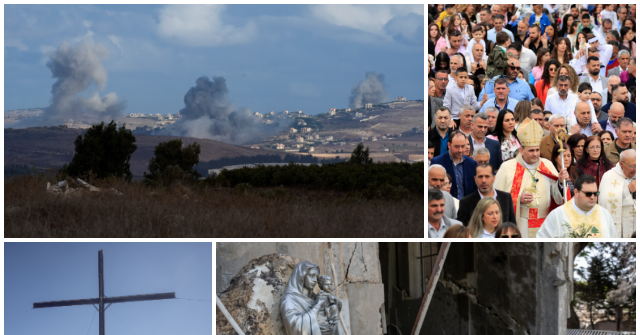Hundreds of Lebanese Christians in southern Lebanon have had to flee their homes following Israeli airstrikes and evacuation orders that have left some seeking shelter in a nearby monastery, as the war between Israel and Hezbollah escalates.
Lebanon is home to the second largest Christian population in the Middle East. Roughly 30 to 40 percent of this small religiously diverse Mediterranean country is comprised of Maronite Catholics (the largest Christian group), Melkite Greek Catholics, Greek Orthodox Christians, and Armenian Christians. The country’s historic Christian strongholds are in the coastal city of Jounieh north of Beirut, in Mount Lebanon, and in the Bekaa Valley city of Zahle. However, Christian communities are peppered throughout the country living among the nation’s Shia, Sunni, and Druze.
Although Israel has declared it is not at war with Lebanon in general and is targeting fighters and weapons from the Shia militia Hezbollah, which is designated a terrorist organization by the United States, this has not stopped it from forcibly evacuating a number of Christian villages in southern Lebanon, which is a Shia majority area interspersed with Christian communities not aligned with Hezbollah.
Imad Lallous, mayor of the municipality of Ain Ebel, one such Christian town near the Israeli border, said Israeli officials told the community to evacuate the town in just 45 minutes.
“The situation is devastating,” Lallous said. “Why us? There is no Hezbollah in Ain Ebel and Israel knows that.”
Lallous said that on Tuesday morning calls started coming in to residents from the Israeli military, telling them they should evacuate immediately and not return until further notice.
“They told me, as the mayor, I should inform everyone to leave,” Lallous said. “But we have nothing to do with the fighting, we don’t have any political parties here, no Hezbollah, nothing.”
Later that day, an evacuation order came on social media for more than 20 towns and villages, including Ain Ebel.
Along with many others, Lallous is taking shelter at Our Lady of Annunciation monastery and school, a Maronite Christian institution in the border town of Rmeich, less than two miles from Israel. Many are hoping to move on from there to Beirut for safety reasons.
Seventy villagers have reportedly received shelter in the monastery and school, and local residents have also opened up their homes to 30 more fleeing the violence. Many others have already fled north to Beirut and beyond.
Sister Maya El Beaino, a Catholic nun of the Sacred Hearts of Jesus and Mary who decided to stay at the St. Joseph Convent in Ain Ebel to be near the local Christian community, said that some 9,000 Christians in three of the villages close to the Israeli border in southern Lebanon are in constant danger because of the attacks.
“Everyone talks about the people who have fled, but no one talks about the many Christians who have chosen to stay because they fear losing their home and their land forever,” Sister Maya said.
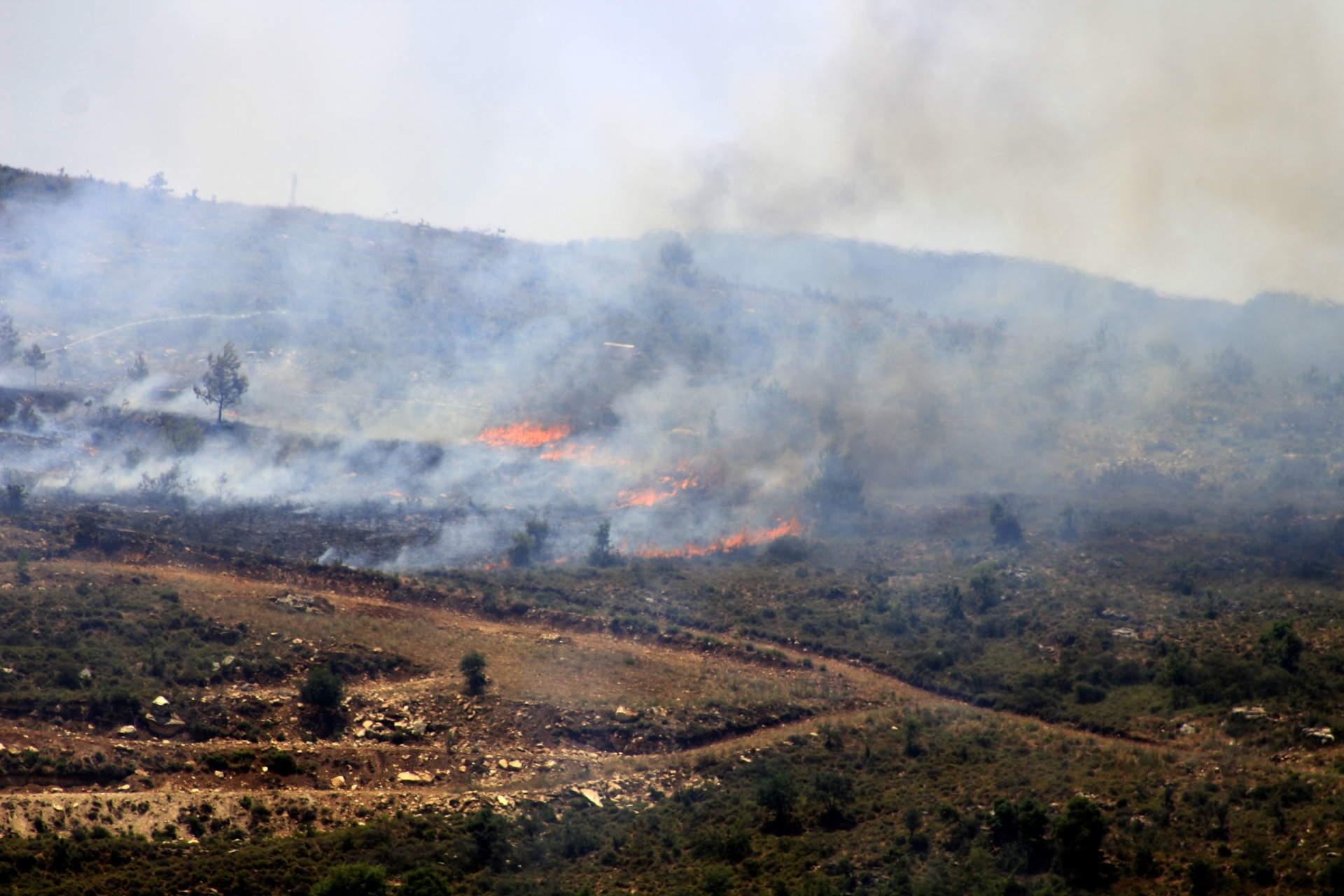
Fire sweeps over fileds targeted by Israeli artilley on the outskirts of the southern Lebanese village of Rmeich on June 4, 2024, amid ongoing cross-border clashes between Israeli troops and Hezbollah fighters. (KAWNAT HAJU/AFP via Getty Images)
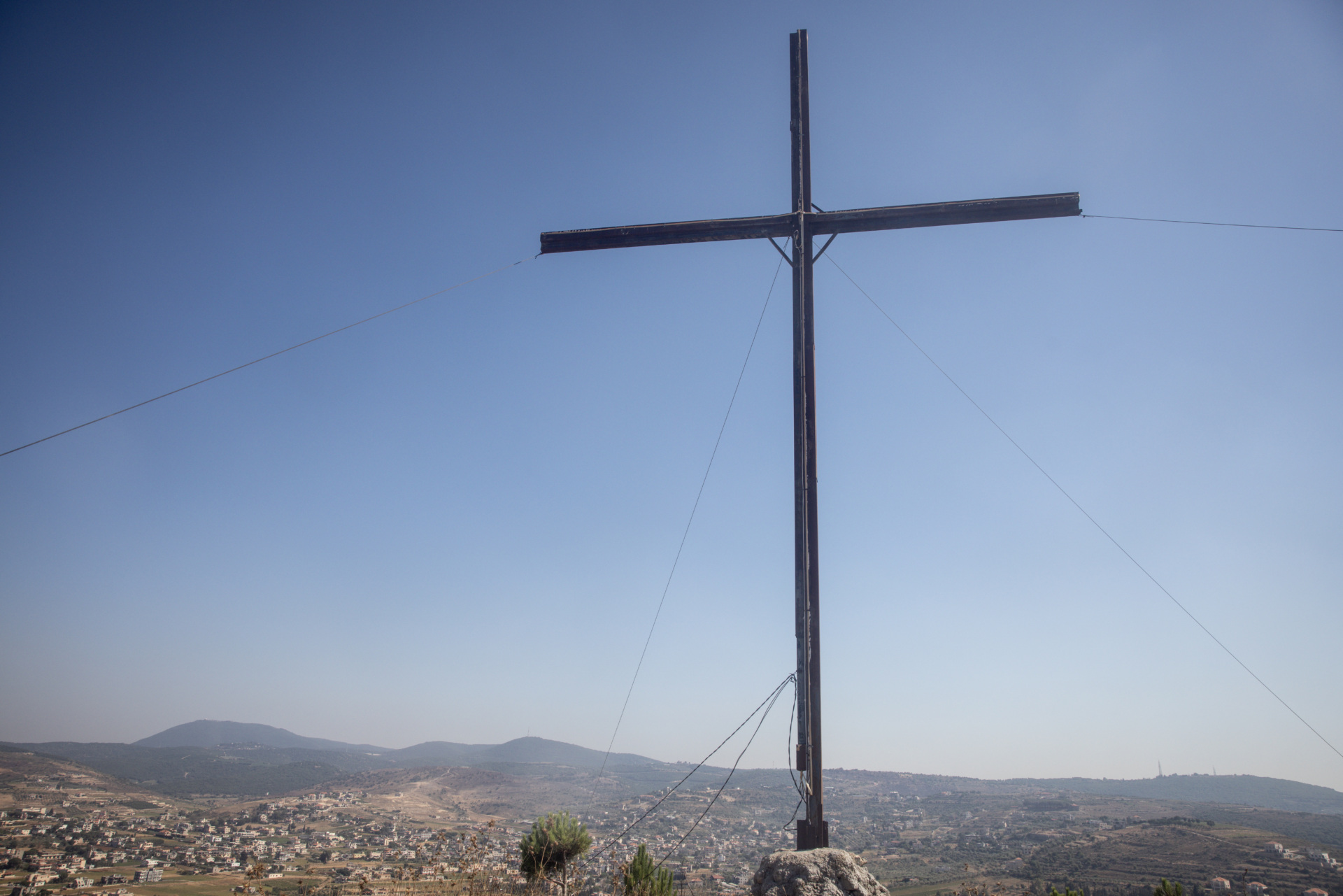
RA cross stands over the Lebanese Christian town of Rmeich on Lebanon’s southern border in close proximity to the Israel border on June 27, 2024, in Rmeich, Lebanon. Cross-border artillery and air strikes between Israel and Hezbollah, the militant and political group, have become a fixture of daily life for communities on either side of the border. Hezbollah and the Israeli Defense Forces (IDF) have been trading cross-border fire since the October 7 Hamas attacks. (Chris McGrath/Getty Images)
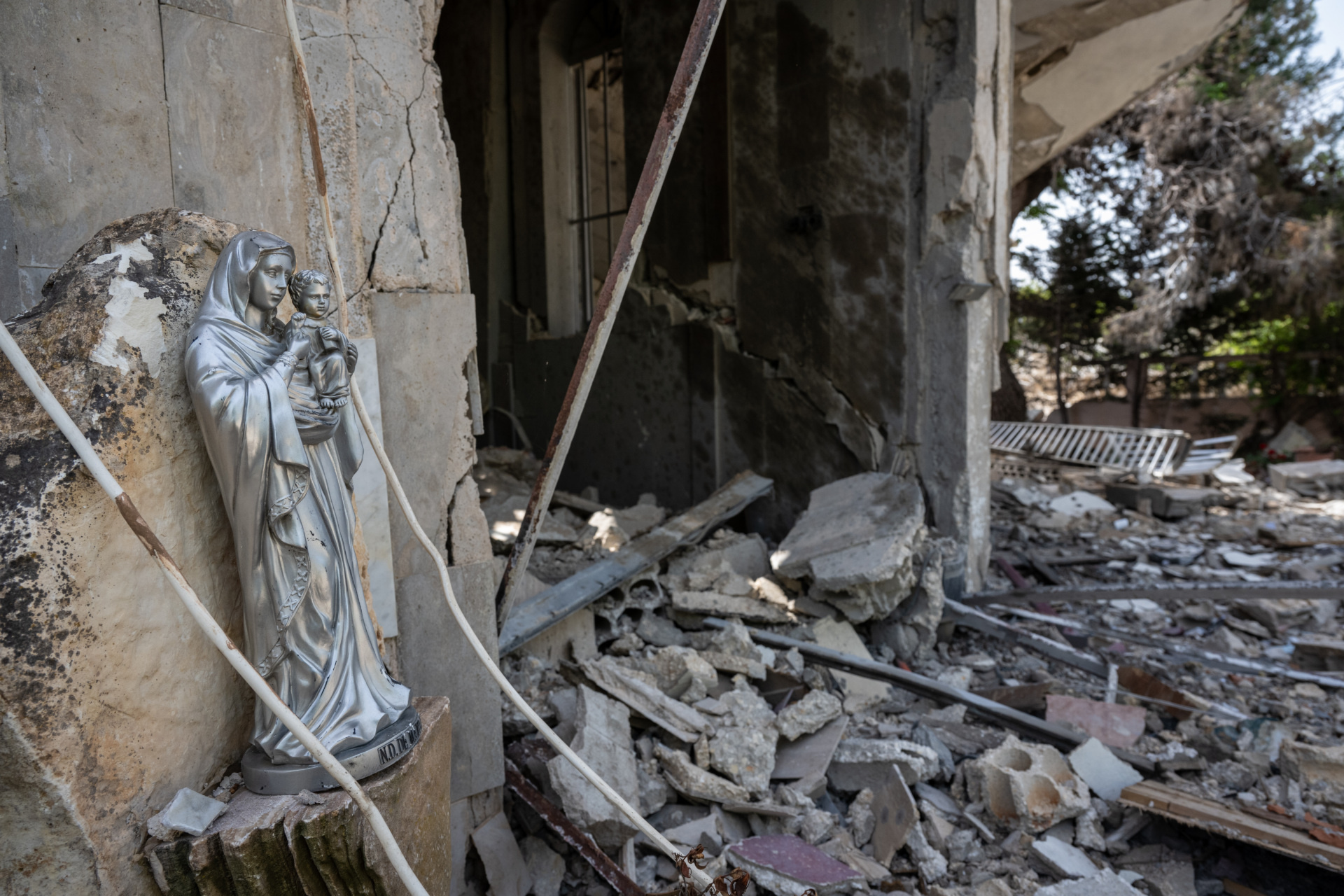
A Christian statue of Mary and the baby Jesus is seen amidst residential houses in ruins due to Israeli aerial attack against Shiite Hezbollah militia targets, at a Christian village adjacent to Lebanon’s southern Blue Line border on May 18, 2024, in Alma el-Shaab, Lebanon. The christian village has been caught between Hezbollah-Israel exchanges of fire. (Scott Peterson/Getty Images)
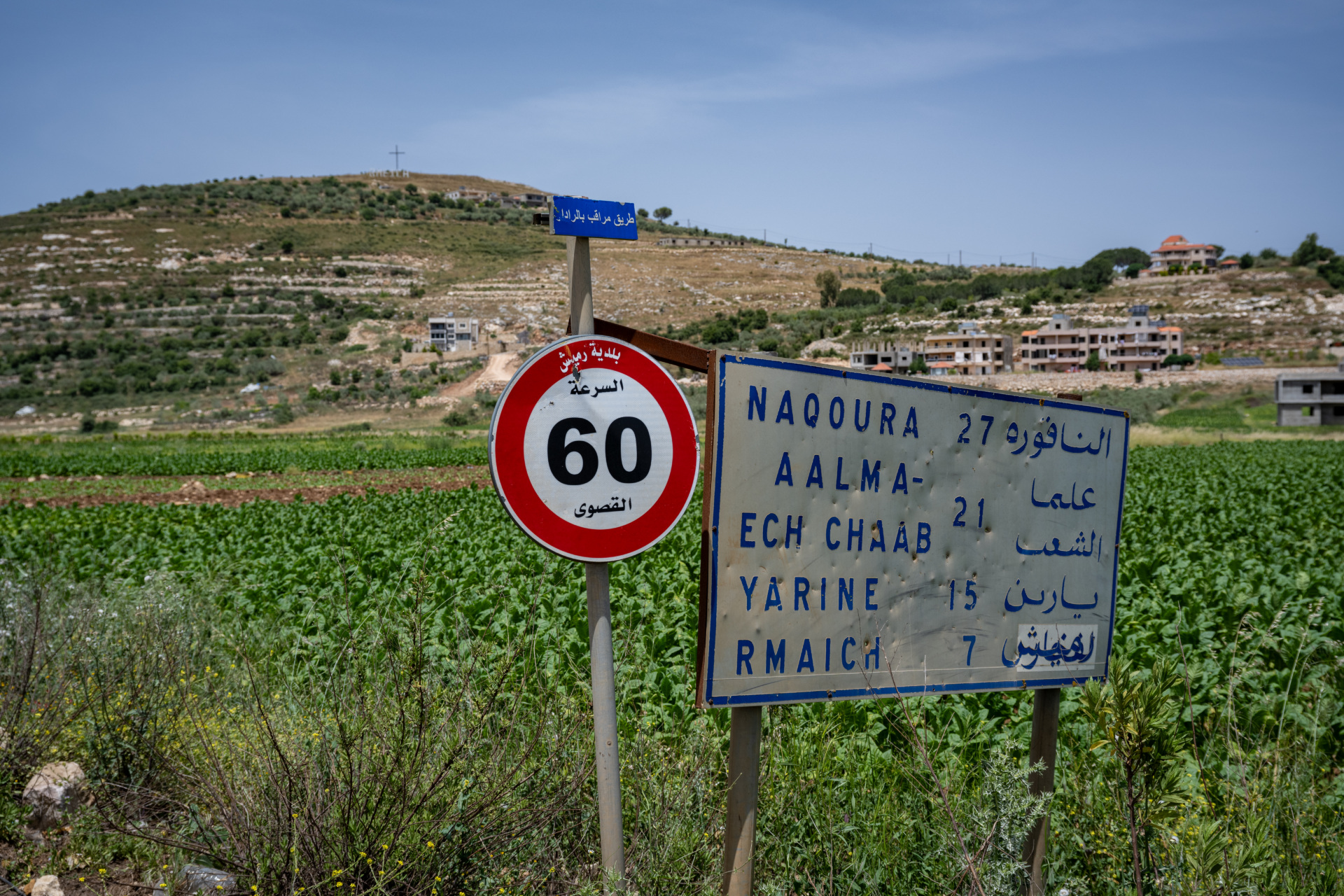
A cross stands on top of a hillside, as Lebanese Christians preserve daily life despite close proximity to Lebanon’s southern border with Israel, and Iran-backed Lebanese Shiite militants who fire rockets at Israel from nearby and surrounding villages, which attracts Israeli counter fire that has damaged crops and grazing areas on May 19, 2024, in Rmeich, Lebanon. (Scott Peterson/Getty Images)
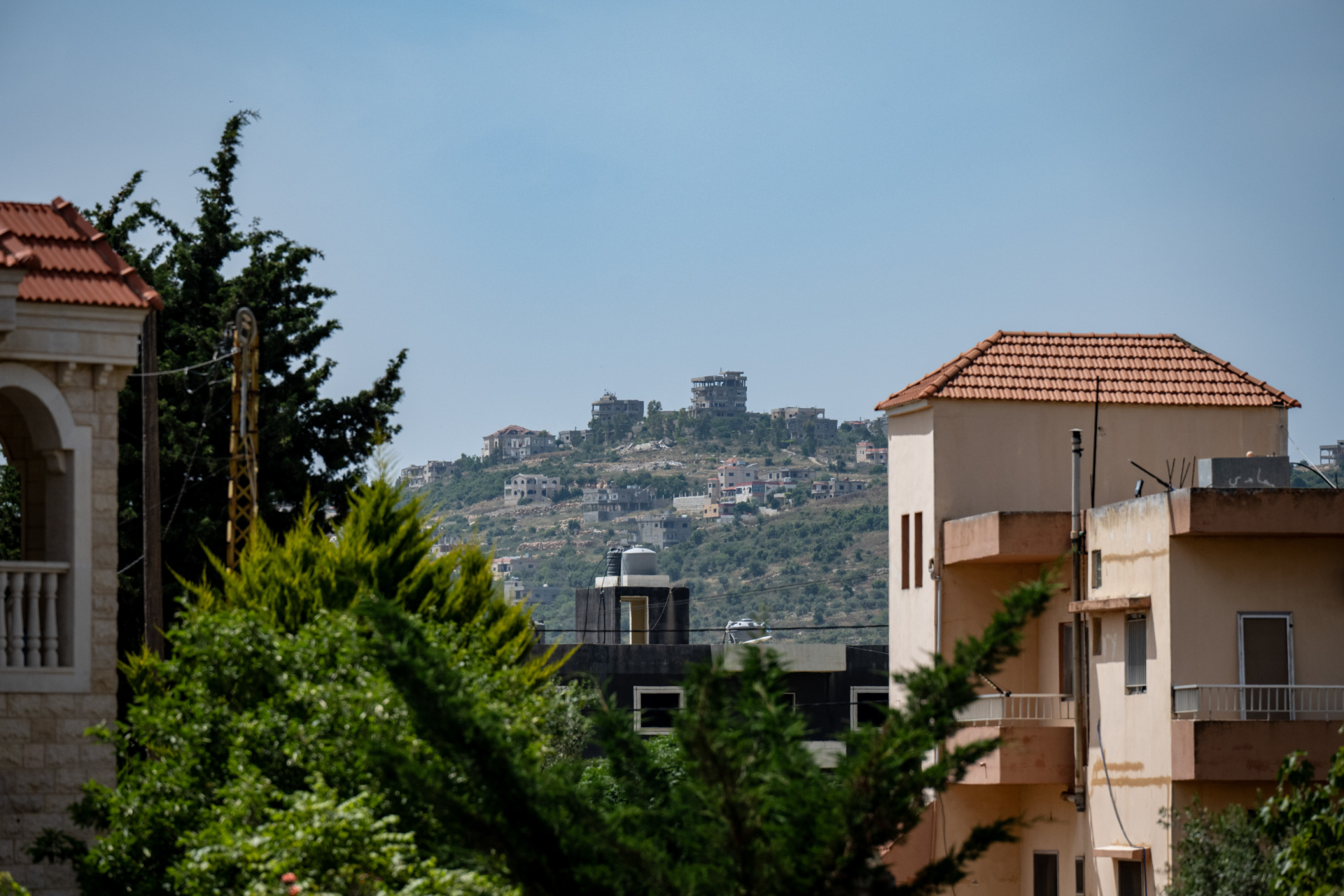
The view from the village of Rmeich, Lebanon, as seen on May 19, 2024. (Scott Peterson/Getty Images)
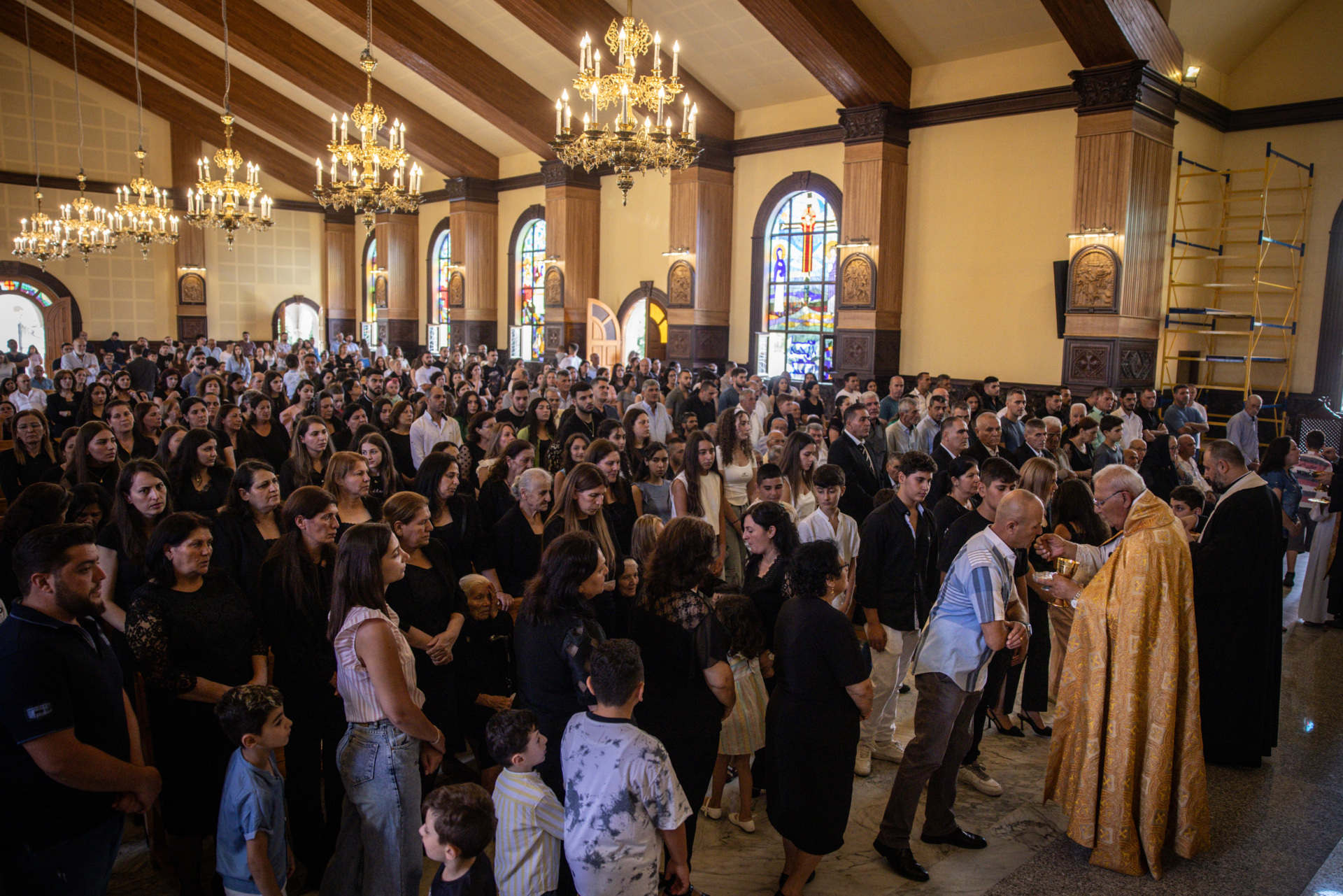
People take communion during Sunday mass at the Al Tajali Church in the Lebanese Christian town of Rmeich on June 30, 2024, in southern Lebanon. Cross-border artillery and air strikes between Israel and Hezbollah, the militant and political group, have become a fixture of daily life for communities on either side of the border. (Chris McGrath/Getty Images)
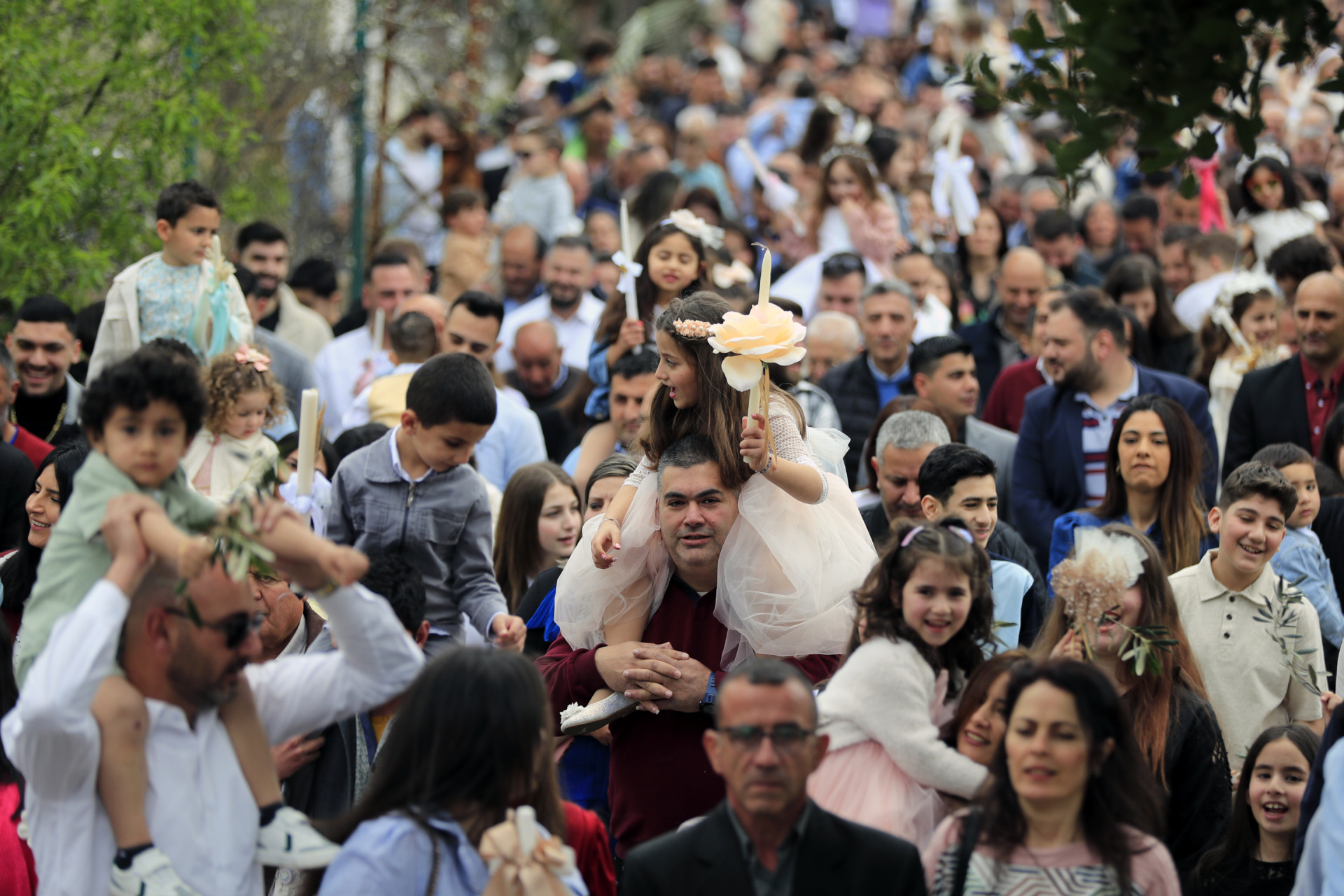
Lebanese Christians attend the traditional Palm Sunday procession in the southern village of Rmeich, a Lebanese border village with Israel, on Sunday, March 24, 2024. (AP Photo/Mohammed Zaatari)
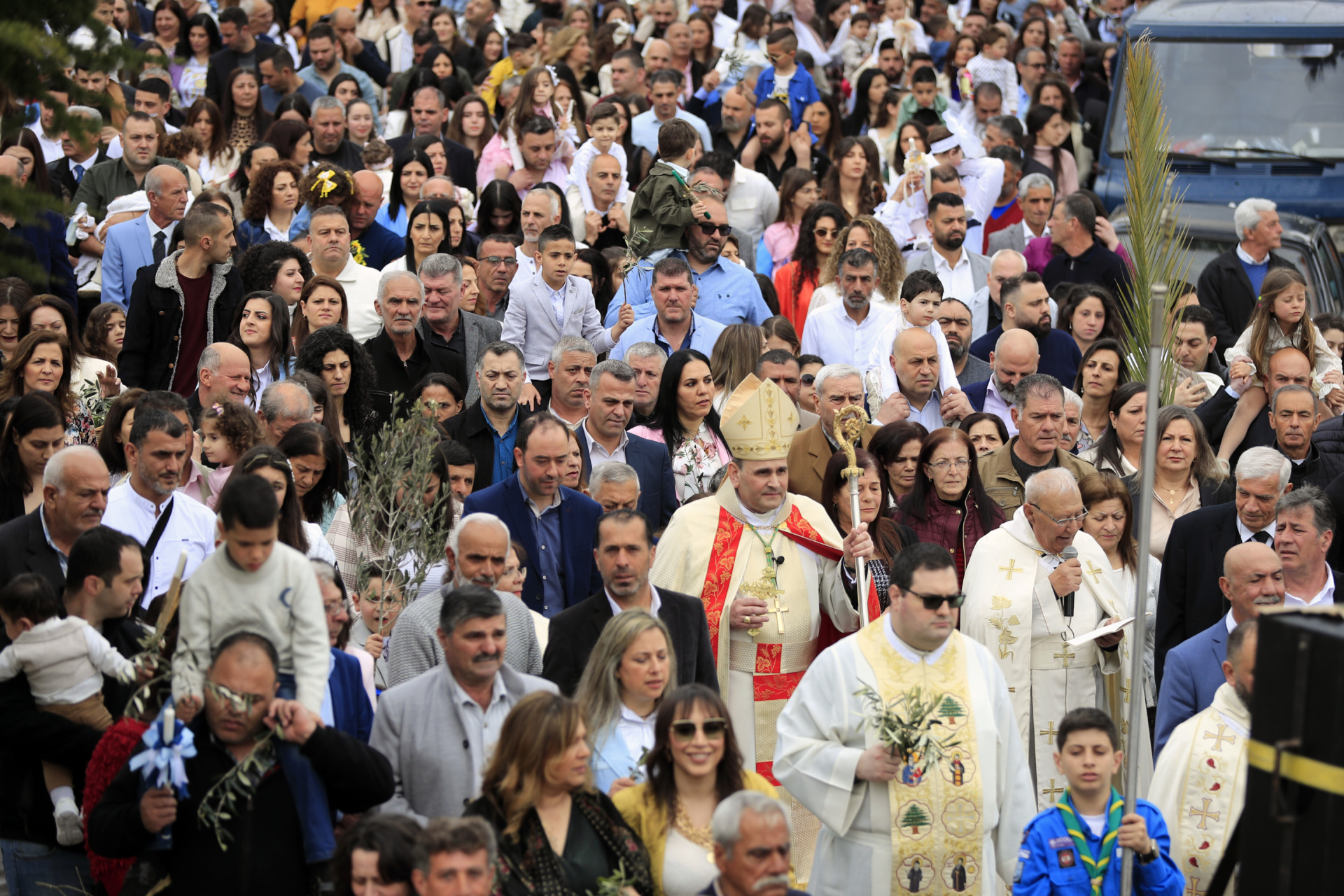
Lebanese Christians hold the olive branch and palm fronds during the traditional Palm Sunday procession in the southern village of Rmeich, a Lebanese border village with Israel, on Sunday, March 24, 2024. (AP Photo/Mohammed Zaatari)
Although many left the region at the beginning of the Gaza war, “many families have returned home because life in Beirut is very expensive and because they could not bear to be separated from their parents, who were left alone in the south,” she added.
St. Joseph’s Convent runs the only Catholic school in the area and educates children from 32 surrounding villages, but classes have been suspended due to the ongoing violence.
“They saw how Israel attacked two schools in Gaza. The children were not safe here,” said Sister Maya, who is also principal of the St. Joseph school.
“The situation is simply terrible. People are still carrying trauma from the war in 2006, and there is a big fear that bridges and roads will be bombed again – especially now that a ground invasion is being spoken about,” she said.

